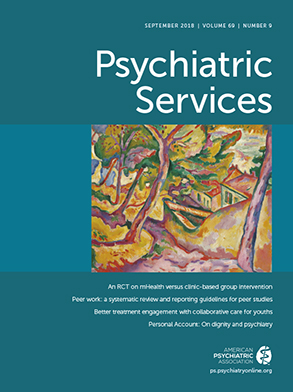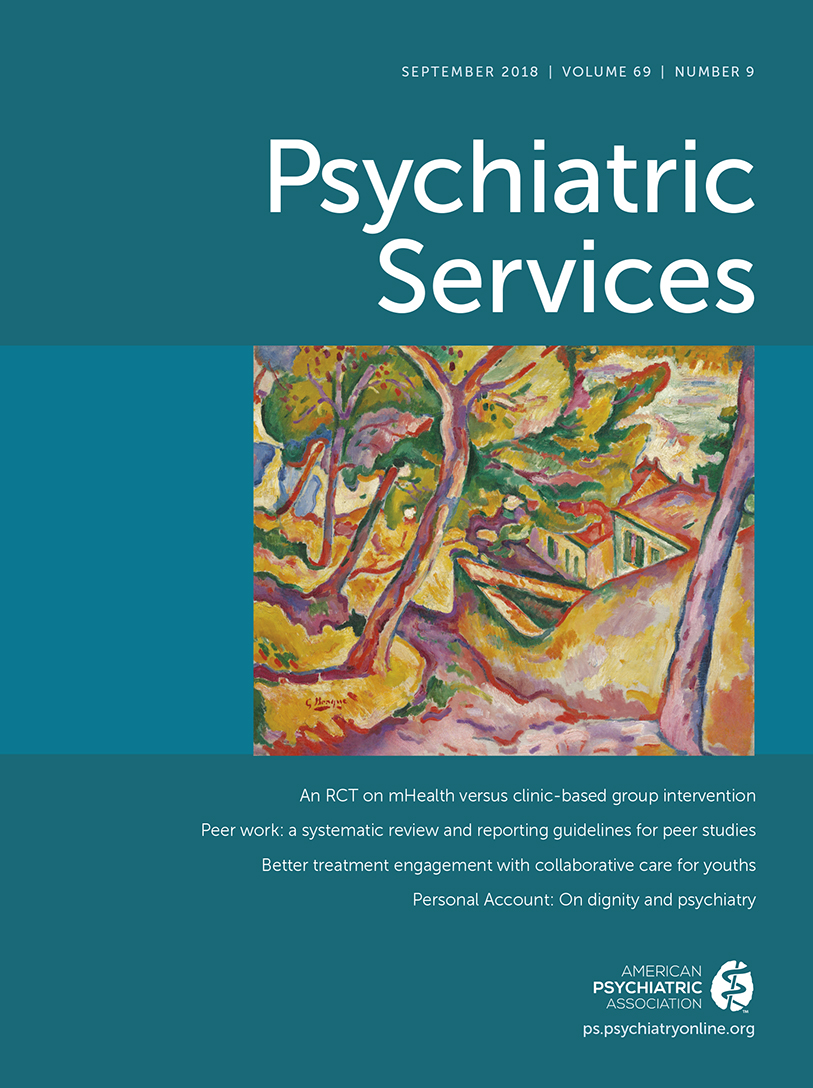After years of discussing the feasibility of mobile health interventions delivered via smartphones, it is now time to move forward. The article in this issue by Dror Ben-Zeev, Ph.D., and colleagues represents a milestone for mobile mental health. Similar clinical outcomes were achieved in a 12-week randomized trial that compared the smartphone intervention with an in-person self-management group intervention led by trained facilitators with lived experience of mental illness, leaving little doubt about feasibility. But what comes next?
In the postfeasibility era of mobile mental health, it is now time to consider efficacy, effectiveness, and efficiency. This study offers high-quality efficacy data indicating that in a clinical trial setting, smartphone apps can safely deliver clinical services. But like any new intervention in the medical field, reproducibility of results is critical for establishing efficacy. Replication studies will shine light on the “active ingredient” in these apps, explain how app design affects outcomes, and help quantify the currently elusive “digital placebo effect.” Of note, prior versions of the app described have been studied and have shown positive results. Given the scalability of smartphone apps, which can be shared with a single click, reproducibility studies can be conducted more economically than before. In an era of open-source software—where code for apps is freely shared, modified, and used by others—open-source apps will become widely used and thus grow the greatest efficacy base. Another advantage of open-source apps is that other investigators, or companies, can build off prior efforts and make incremental improvements versus starting from scratch when software is not shared. With open-source apps, we may soon see a wealth of new efficacy studies that will likely confirm the positive results of this and other pioneering studies.
As smartphone interventions demonstrate reproducible efficacy, researchers next need to consider their effectiveness when deployed outside of study environments and into busy clinical practices. The study by Ben-Zeev and colleagues is impressive in that many elements of the study are relevant to effectiveness, including studying the app in a representative clinical sample. The study featured weekly check-in calls from study staff who reviewed app data with patients, underscoring two critical points. First, apps supported with human contact appear more successful than apps without. Second, the introduction of humans, or “technology navigators,” to help support app use may represent a new model of care and certainly a new member of the clinical team. Assessing effectiveness of mobile mental health in the context of today’s clinical practices will be challenging, with the understanding that some practices are not ideally suited to support technology navigators or integrate such technology solutions into clinical workflows.
Considering effectiveness dovetails into assessing the efficiency of mobile mental health solutions. If the potential of smartphone apps and similar innovations is to increase access to care, enable broad screening and monitoring of mental health, and finally deliver interventions, as in this study, can this be accomplished in an efficient manner, considering costs and often limited mental health resources? In the study, participants were provided with a smartphone and data plan, and although this arrangement may be costly today, it will become cheaper with time and may soon not represent a barrier to efficiency. But assessing the efficiency of any mobile mental health app is likely to be outside the scope of any single study. The Ben-Zeev study indirectly provides insights on this point with a different version of the study app, called Thrive, which was licensed to the Novartis Pharmaceuticals Corporation in March 2018. How Novartis Pharmaceuticals plans to use, and perhaps even market, Thrive is not currently known but will be telling.
As we enter the postfeasibility era and contemplate the next steps of efficacy, effectiveness, and efficiency, looking back it will be clear that the Ben-Zeev study represents a big step across the threshold. As mobile mental health enters a new era, there are now even more questions and challenges to tackle. But there are many new advantages, including open-source software and apps to support efficacy studies, new care models to assess effectiveness within, and advances in technology that will facilitate efficiency. However it unfolds, the new era for mobile mental health has already started, and the field is fortunate to have researchers like Dr. Ben-Zeev leading the way.

